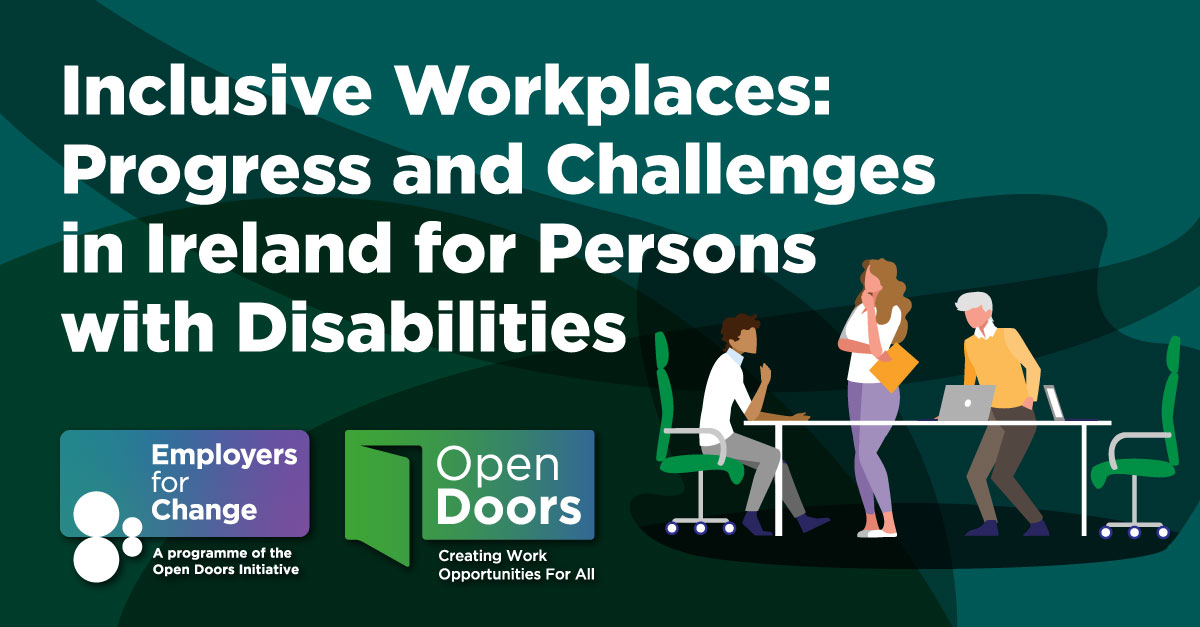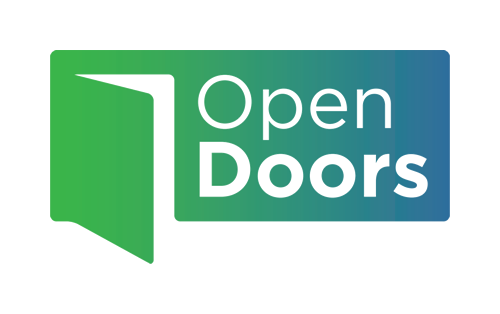
Workplace inclusion for persons with disabilities in Ireland has gained significant momentum, driven by national policies, government schemes, evolving public attitudes, and increased employer awareness. However, despite progress, substantial challenges remain. As you may already know, Ireland is ranked lowest among EU member states in terms of disability employment.
This article examines advancements in disability inclusion in the workplace, ongoing obstacles, and actionable insights for employers.
Significant legislative progress has been made in Ireland to promote and support the employment of persons with disabilities in the public sector. Part 5 of the Disability Act 2005 established a statutory obligation for public bodies to promote and support the employment of people with disabilities.
The Disability Act 2005 requires public bodies to make their buildings and services accessible to people with disabilities. This comprehensive approach addresses employment and accessibility, creating a more inclusive environment for persons with disabilities in the public sector. Other developments are as follows:
Legislative and Policy Developments
- Employment Quota Increase: The Irish government raised the public sector employment quota for persons with disabilities to 4.5% for 2024 and 6% for 2025. This aims to promote equitable representation of persons with disabilities in public sector roles
- Work and Access Scheme: Private, community, and voluntary sector employers can access financial support through schemes like the Work and Access Scheme to fund workplace accommodations for employees with disabilities and support employers with the costs associated with providing assistive technologies and training
Increased Awareness and Representation
- Employers in Ireland are increasingly adopting diversity and inclusion strategies, recognising the benefits of a diverse workforce. Disability inclusion is being prioritised in diversity statements, recruitment policies, and workplace culture initiatives.
- Awareness of disability inclusion in the workplace is growing, with increasing recognition that employers must do more to integrate the skills and talents of persons with disabilities. IHREC surveys indicate that most companies acknowledge the barriers faced by persons with disabilities and support initiatives to enhance workplace inclusion.
Despite ongoing efforts, unemployment rates remain high, and workplace accommodation issues persist. Below are the ongoing challenges that hinder the progress towards employment:
Employment Data
- According to the National Disability Authority (NDA) fact sheet 2024, 49.3% of working-age persons with disabilities in Ireland were employed in 2022, compared to 70.8% of those without disabilities.
- Unemployment rates further emphasise this disparity: 13.9% of people with disabilities (to any extent) are unemployed, compared to just 7.5% of people without disabilities in Ireland. The severity of disability also impacts employment outcomes.
- According to the Higher Education Authority’s Graduate Outcomes and Disability Report (2023) shows that graduates with disabilities were more represented in each of the lower salary bands; up to salaries of €20,000-€24,999.
Employment Disparities
- Underemployment and Unemployment: Data from the Central Statistics Office (CSO) from the census 2022 shows that six out of ten of the disabled of working age who were unemployed were out of work on a long-term basis, and those experiencing a long-lasting condition or difficulty to any extent who were in short and long-term unemployment, over two-thirds were unemployed for more than a year
- Sectoral Exclusion: CSO data shows that people with at least one long-lasting condition or difficulty tend to have lower levels of education compared to the general population. This limits access to sectors that require higher qualifications and specialised skills, restricting many to traditionally accessible industries like retail and care services, which typically have fewer formal education requirements
Workplace Accessibility
- Physical barriers persist in many workplaces, despite legislation mandating accessibility. For instance, outdated infrastructure and a lack of assistive technologies hinder productivity and efficiency
- Digital accessibility remains underdeveloped, with inaccessible document formats, colour contrast and other elements limiting opportunities for employees with disabilities
Attitudinal Barriers
- Bias and misconceptions about the capabilities of persons with disabilities remain widespread
- A lack of disability awareness training exacerbates workplace exclusion and creates environments that are not fully inclusive. A report from the Chartered Institute of Personnel and Development (CIPD) HR Practices in Ireland Survey 2021 states that “Only 34% reported proactively undertaking inclusion and diversity awareness raising activity with employees, a relatively low number and a smaller percentage had appointed employee resource groups, indicating that involving employees tended to be less common than management led policies”
Policy Gaps
- While public sector roles have clear targets, private sector inclusion remains voluntary, with no quotas or penalties for non-compliance
- The employment rate continues to remain low among other EU member states. This emphasises that the impact of policies is limited with regards to employment and further structural changes or amendments are needed
WHAT CAN BE DONE
Ireland has made notable strides in promoting workplace inclusion for persons with disabilities, but the journey is far from complete. Employers, policymakers, and educators must work collaboratively to address systemic barriers, shift attitudes, and create environments where all individuals can thrive. By committing to these actions, the employment gap can be closed further, and we can aim for best practices in Europe.
Employers
- Invest in Training: Implement comprehensive disability awareness and inclusion training for all staff to challenge biases and build inclusive workplace cultures
- Audit Accessibility: Regularly assess physical and digital workplace environments to identify and address accessibility barriers
- Support Career Development: Create mentorship and leadership programs tailored to employees with disabilities to support career progression and retention
Policymakers
- International Best Practice: Incorporate international best practices from countries whose policies have helped to reduce the unemployment gap for their population
- Data Collection: Improve national data collection on disability employment to track progress and identify gaps
Educators
- Promote Inclusive Education: Ensure students with disabilities have access to quality education and training that aligns with labour market demands
- Facilitate Transitions: Strengthen school-to-work transition programs, linking students with disabilities to paid internships and apprenticeships
- Traineeship Programs: Advance short or structured programs that blend learning in educational settings with workplace experience, leading to awards at higher NFQ Levels to catch up with the educational gap
We provide training and consultation about Disability awareness, reasonable accommodation in the workplace and related topics. Please contact the following to book a training now:
Email: info@employersforchange.ie
Phone: 0851579603

